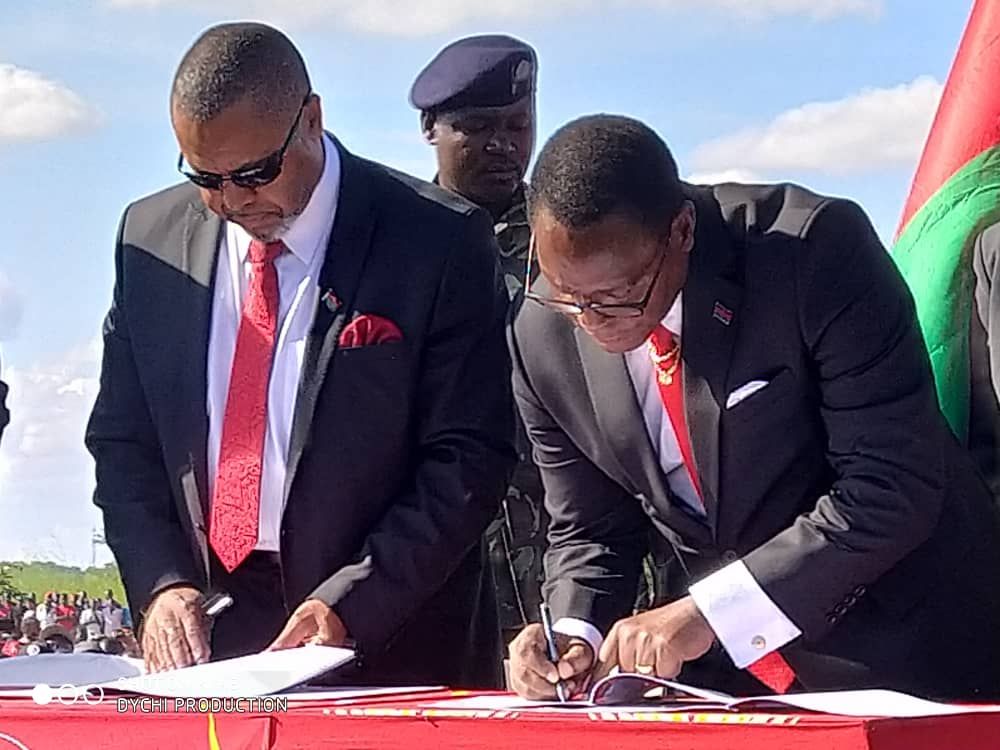By Al Bashir bin Abdul Aziz
In the framework of a stable and effective democracy, it is generally anticipated that a governing party must garner the support of a majority legislature to form a government. This expectation serves as the basis for political parties to either form alliances or coalitions.
An alliance denotes a long-term partnership characterized by shared interests and objectives. Conversely, a coalition signifies a temporary union created to achieve a specific goal, without necessitating long-term commitments from the involved parties.

While both alliances and coalitions involve cooperation, the critical distinction lies in their longevity: alliances are enduring, while coalitions are typically short-term, dissolving once their shared objective is achieved. Understanding this distinction is vital for comprehending the dynamics of both international relations and domestic politics.
Malawi’s sixth tripartite elections took place in May 2019, but the presidential results were nullified by the Constitutional Court in February 2020. Fresh elections on June 23, 2020, resulted in Lazarus Chakwera of the Malawi Congress Party and Saulos Chilima of the UTM Party being elected as president and vice president, respectively, after receiving 58.6% of the votes. They triumphed over Peter Mutharika of the Democratic Progressive Party (DPP) and the United Democratic Front coalition, which secured 39.4%. Chakwera and Chilima subsequently led a coalition of several political parties known as the Tonse Alliance.
A lingering question among the electorate is whether the 2020 elections produced an “alliance” or a “coalition” government.
While the literature on alliances and coalitions is abundant with definitions and typologies, this discussion will focus on the essential understanding of both terms as agreements for joint cooperation and a common agenda among at least two political parties.
The timing and basis of the agreement are fundamental to differentiating between an alliance and a coalition. An alliance is typically formed prior to elections based on an agreed ideology aimed at maximizing votes, whereas a coalition refers to the post-election formation of political parties in Parliament or government based on their respective electoral outcomes (Wyatt, 1999).
The nullification of the 2019 election results reshaped the political landscape, leading parties to consider entering a power-sharing arrangement. As a result, the 2020 elections saw various parties coming together to form what they described as either “coalitions” or “alliances.”
However, an effective alliance relies on the capacity of individuals on both sides to collaborate as if they were members of the same party. Such collaboration requires team members to understand how their counterparts operate, including decision-making processes, resource allocation, and information sharing.
Given the conflicts emerging among the Tonse parties, it is questionable to conclude that their formation constituted an alliance. As previously mentioned, alliances are established prior to elections to allow parties to understand each other’s ideologies. The rushed formation of the Tonse “alliance” suggests it was more accurately a coalition.
A coalition government arises in a democratic system when no single political party secures a majority of votes or seats in Parliament. The political landscape following the 2019 elections made it evident that coalition formation was necessary for parties to achieve a majority. The primary objective of the Tonse coalition was to oust the DPP administration, reflecting a short-term goal that complicates long-term unity post-victory.
As Malawi navigates its complex political landscape, observing the evolution and effectiveness of coalition governments will be critical. It is essential for political parties to strive for alliances rather than mere coalitions, as the goals of alliances extend beyond just winning elections.
Alliances provide a mechanism for pooling resources, facilitating the development of joint capabilities that individual members cannot achieve alone. Scholars continue to investigate the intricate relationship between regime type and alliance formation. Gibler and Wolford (2006) and Gibler and Sewell (2006) argue that while democracies may not be more likely to form alliances, they are more likely to be allied. They propose a reversal of causality: it is not democracy that leads to alliances but rather that alliances can lead to democracy.
In conclusion, the discourse surrounding the Tonse Alliance reflects a broader narrative in Malawi’s political context. Distinguishing between alliances and coalitions is not merely academic; it is essential for understanding how political partnerships can influence governance, accountability, and the future of democracy in Malawi.


